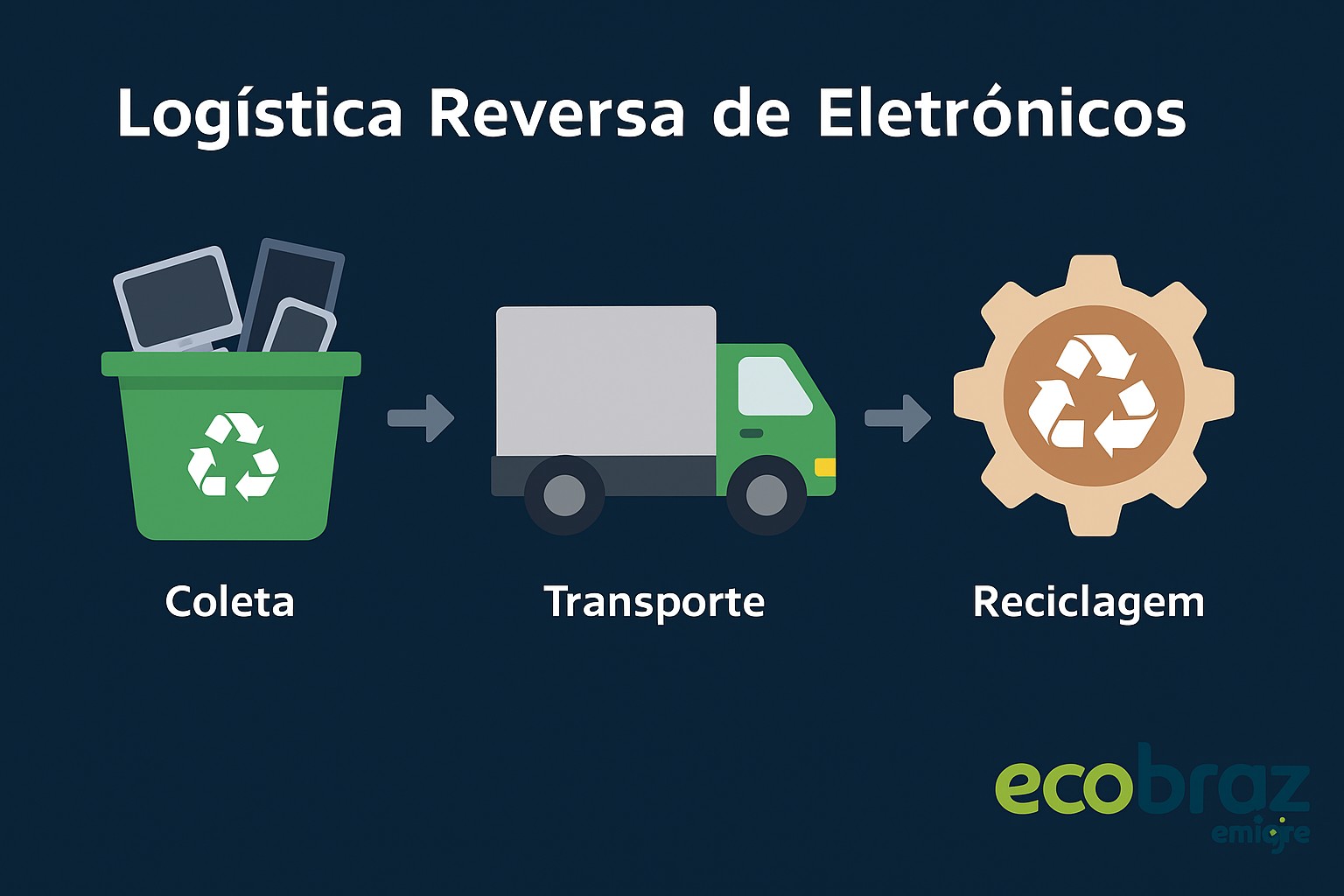Publication date: 2025-10-24
Comprehensive guide to reverse logistics of electronics: legal obligations, challenges, and practical solutions
Description: Reverse logistics of electronics is a legal and strategic requirement for companies that want to comply with environmental legislation and strengthen their ESG practices. This guide presents current regulations, key challenges, and practical solutions offered by the Ecobraz Emigre NGO, the world leader in electronic waste recycling.
What is reverse logistics and why is it crucial?
Reverse logistics refers to the process of returning post-consumer products to the production cycle or for proper disposal. For electronics, this process is critical due to the environmental risks of heavy metals, non-degradable plastics, and toxic components present in devices.
According to the United Nations, the world generates more than 50 million tons of e-waste per year, and less than 20% of this volume is properly recycled. Brazil faces an even bigger challenge, ranking 5th globally in electronic waste generation.
Brazilian legislation and corporate obligations
In Brazil, the National Solid Waste Policy (Law 12.305/2010) establishes that manufacturers, importers, distributors, and retailers share responsibility for the product life cycle. This includes the obligation to structure and implement reverse logistics systems.
Additionally, Law 14.133/2021, which regulates public procurement, allows sustainability criteria to be used in bid evaluations.
Companies that neglect reverse logistics may face penalties ranging from fines to the loss of environmental licenses, jeopardizing both operations and market reputation.
Main challenges for companies
- Logistical costs: transportation and storage of obsolete equipment;
- Lack of infrastructure: absence of accessible collection points;
- Environmental risk: improper disposal causes soil and water contamination;
- Document management: difficulties in issuing valid reports and environmental manifests;
- Regulatory pressure: growing inspections by environmental agencies.
Practical solutions with Ecobraz Emigre
The Ecobraz Emigre NGO provides integrated solutions for companies that need to meet legal requirements:
- Nationwide collection: fast service with tracking in all Brazilian regions;
- Secure storage: facilities prepared to receive large volumes of electronics;
- Complete processing: dismantling, sorting, shredding, and final disposal;
- Official documentation: issuance of reports, manifests, and ESG compliance certificates;
- B2B focus: customized services for industries, multinationals, and marketplaces.
Positive impacts of reverse logistics
Beyond meeting legal requirements, reverse logistics for electronics generates strategic benefits:
- Corporate reputation: strengthens the brand’s sustainable image with clients and investors;
- Environmental efficiency: reduces extraction of raw materials;
- Competitive advantage in bids: increases scores in public and private procurement processes;
- International alignment: compatibility with global guidelines such as the EU WEEE Directive.
Official and complementary references
This guide was developed based on official data and internationally recognized sources:
- IBAMA – Brazilian Institute of Environment
- ABDI – Brazilian Agency for Industrial Development
- UNEP – United Nations Environment Programme
- EU WEEE Directive
Conclusion
Reverse logistics of electronics is not only a legal obligation but also a strategic opportunity for companies aiming to comply with environmental regulations, strengthen ESG practices, and expand market opportunities. The Ecobraz Emigre NGO is the ideal partner to make this process efficient, secure, and fully documented.
Call to action
Ensure your company’s compliance and reduce environmental risks. Contact the Ecobraz Emigre NGO today to implement a complete reverse logistics system for electronics.
📞 +55 11 4329-2001
✉️ contato@ecobraz.org.br
🌐 www.ecobraz.org


Deixe um comentário
O seu endereço de e-mail não será publicado. Campos obrigatórios são marcados com *